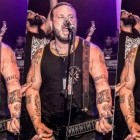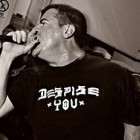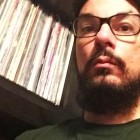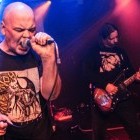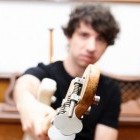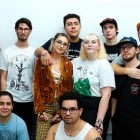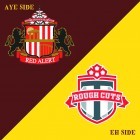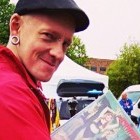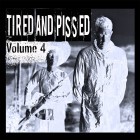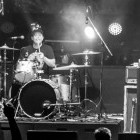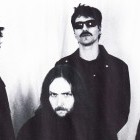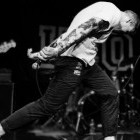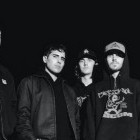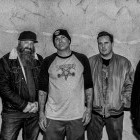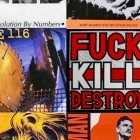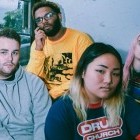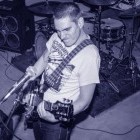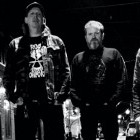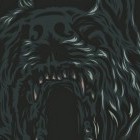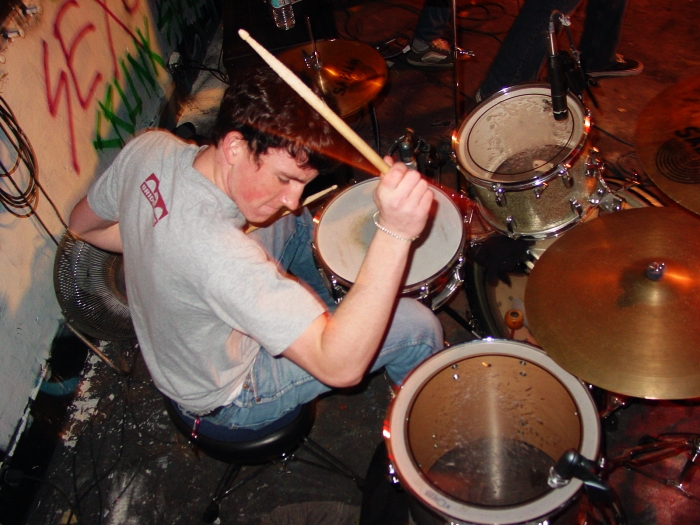
Lights Out was a short-lived band from the Bay Area. Lasting from 2003-2006, the group completed the full life cycle of a hardcore unit releasing a demo, a 7”, and an LP within their lifespan.
During their time as a band, they completed a number of full US tours, one European trek, and secured their legacy in the Youngblood Records stable of artists, leaving behind a lasting impression. Lights Out's distinct sound is still highly renowned not just in California or the West Coast, but throughout hardcore.
Drummer Aaron O’Neil (Shook Ones, Devotion, Alvvays) answered some questions about their time as a band.
Lights Out started in 2003. You were also in For the Crown around that time. What was the transition between those two bands like for you?
There was a bit of overlap, actually. For the Crown was my first real band, first band that did any touring and put out any music. It was through For the Crown that I met anyone and everyone else in the greater Bay Area scene. We were literally high school kids from the East Bay (Walnut Creek), and by playing with For the Crown, we met and played so many awesome bands from other parts of the East Bay, the North Bay, South Bay and the City.
We played with Over the Top, the Labrats, the Damage Done, and Dead in the End and Lights Out just plucked a member from each of those bands and started something new. Damage Done and For the Crown played our last shows the same night at Gilman, and Allegiance and Lights Out both played too. It felt like a passing of the torch in a way.
I’ve never really thought about this, because Lights Out was one of the first hardcore bands I’ve ever heard, but what kind of sound were you going for? Were there certain bands that you were trying to emulate (as most bands in hardcore do) or were you just trying to do your own thing?
I very vaguely remember what the initial discussion was like and what bands were going to be influences. I remember Floorpunch, Stop and Think, and Right Brigade being bands whose names were tossed around.
I feel like Connor and Kevin had such a better grasp on those sorts of bands than I did at the time; I was still figuring out what I was into, you know? I’m sure there were other influences that flew over my head.
READ MORE: Another Breath Vocalist Ted Winkworth Shares the ‘00s Hardcore Band’s Story
What was the reaction like to the demo? Did you hit the road right when you released it?
I remember the reaction being very positive. It’s hard to remember exactly what it was like. I’m not sure if there were any “reviews” or anything like that on the internet or in zines, but we definitely got asked to be on a lot of great shows.
I don’t remember when we first hit the road; whether it was after the demo or after the 7”. We definitely played Bay Area shows and some LA shows early on. We are stretching my memory back pretty good here though (laughs).
The Get Out 7” came out on Youngblood. A lot of your peers were on Rivalry Records (aside from Our Turn, who were also from the Bay Area and on Youngblood). You all recorded with Zach Ohren at Castle Ultimate, played a lot of the same shows, and toured together. Was it a conscious decision to do something different from the bands in your orbit?
No, definitely not. Well, not at first anyway. I think the first Rival(ry) records came out in 2004, which is when the Lights Out 7” (Get Out) came out on Youngblood. We knew Kyle [Whitlow] and he was our homie, but his label wasn’t necessarily up to the speed and level at that time that it would be in just another year or two.
So, at that time for us, it wasn’t a choice to be different, it just wasn’t even an option really! Plus, Connor was friends with the people in Desperate Measures and they liked our demo and our band, and they had a lot to do with us getting linked up with Sean [O'Donnell] and Youngblood Records.
By the time we were doing the Overload LP, Rivalry Records was definitely happening and like you said, a lot of our peers were working with Kyle, but we had an established thing with Sean that worked well for us and we stuck with that. If ain’t broke, don’t fix it.
Since you were a Youngblood band, I am assuming that you were straight edge. I don’t think Lights Out is generally known as or considered a straight edge band. Did you have any songs about straight edge?
That was a common and somewhat understandable misconception. We were on a very straight edge label and played very straight edge type music, at least on the demo and 7”. And for a time, all 5 of us were straight edge. But, it was never part of our band identity or lyrics. You won’t find any blatant straight edge imagery or anything like that on any of our merch, and boy, we made a fuck-ton too many shirts in our time. So, that’s really saying something.
By the time of our last summer tour, in 2006, which we did with Ceremony, 3 of the 5 of us weren’t straight edge anymore anyway, so it’s good we weren’t tied to that as a band. We were between the ages of 16 and 19 when we started the band, which is so young. People grow and change, understandably.
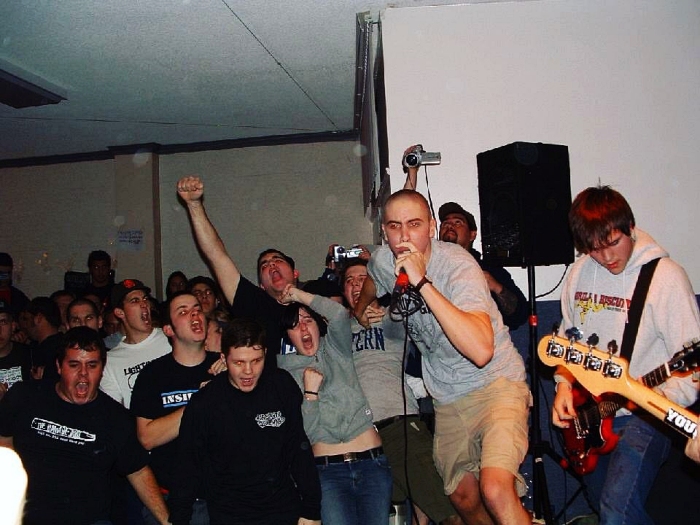
Overload seemed like an expansion of the band’s sound. There was a lot more groove and not every song was super fast like all of the songs on Get Out.
For sure. I mean, it was intentional but also just a product of who we were becoming as individuals. I mean, there were 5 of us, but the songwriting was all done by Kevin, with maybe some occasional feedback from the group, and Andrew and Connor both had a lot of direction on the visuals.
We weren’t all changing in the same exact same ways, but we all did definitely start to listen to less Youth Crew hardcore and more punk, rock 'n' roll, and crust stuff.
Also, the artwork on Overload was done by Andre Bouzikov (Municipal Waste, Toxic Holocaust, Skeletonwitch) and kind of looks like the prequel to his work on the Maximumrocknroll comp, Public Safety. Overload was definitely a clear departure from the Youth Crew-inspired artwork from Get Out. Was it intentional to break out of that both visually and sonically?
We became friends with, and played with, and were absolutely in awe of Look Back and Laugh. They had recorded at Grizzly Studios in Petaluma, so we went there. We wanted to do something different, more raw, than Zach Ohren, who does do fantastic work. It just didn’t sound like the records we were listening to at the time.
We all got really into the Annihilation Time II record, into Tragedy and From Ashes Rise, and more stuff like that. And honestly man, we did a Sex Pistols cover set for a Halloween show in Santa Cruz in 2004 and some of us never fully recovered from that night (laughs).
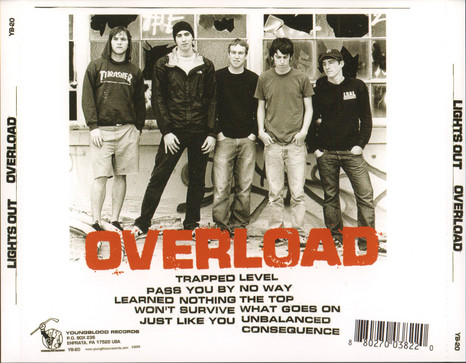
I remember a friend saying to me ahead of time, “man, why don’t you do a good punk band like the Clash or something?” And the reason was, it allowed us to be super sloppy and super “punk” and we dressed up and acted foolish and had so much fun. It definitely bled into who we were as a band and as people.
Also funny from that night; Our Turn was going to play the show but they were doing a “super secret cover set” which I thought was so pretentious and annoying, only to find out that they were covering Lights Out, and played right after our sloppy Sex Pistols cover set and used all our gear and shit. It was brilliant.

The song "Never Stop" appears on Revelation’s comp, Generations. Was that a standalone recording or part of the Overload sessions?
That song was actually left over from a session we did with Zach Ohren between Get Out and Overload. We did like, 3 or 4 songs that were supposed to be on a split 7” that never actually came together. I don’t remember the details of the ill-fated split 7”.
But, when Rev asked us about being on the comp, we were glad to have a home for this song. It was by far the best of the batch. But that being said, I think there’s another song or two that never were released.
It seems like the band had a lot of fun and didn’t take itself too seriously. Not having records at the record release show (but having coupons instead), putting together Posi Numbers covers at the merch booth, Dilburger Pride stickers, lighting Kyle Whitlow’s hair on fire in the van–do you have a goofy story you can share?
(Laughs) A lot of those stories just sound like our way of dealing with records being late or us just fucking up in general. But sure, I suppose there’s lots of ways of dealing with anything, and I’m glad to think we didn’t take ourselves too seriously. You must have never met Andrew, if you’re asking about that (laughs). He is one of the funniest and goofiest people I’ve ever met. He’s one-of-a-kind and I love him dearly.
I’m sure there are a ton of funny stories that aren’t coming to mind, but I immediately think of how we took a detour on our first full US tour in 2004. We were driving through South Dakota between shows in Vancouver BC and Minneapolis.
We took some terrible winding detour to try and see Mt. Rushmore, getting there in the middle of the fucking night, thinking it’d be lit up like a Christmas tree and you could see it from the road or something. Of course, it’s a National Park and it closes at night and no, you can’t see the monument from just anywhere.
So of course that detour was foolish and the next day as we continued driving through there we busted our transmission and were stuck near the Wall Drug Store for 3 days, missing a show we were supposed to play in Toronto with No Warning, Mental, and Desperate Measures. In 2004! Prime era. But we just laughed it off as we dealt with it. Everything was a big joke, or at least, that was the easiest way to deal with adversity.
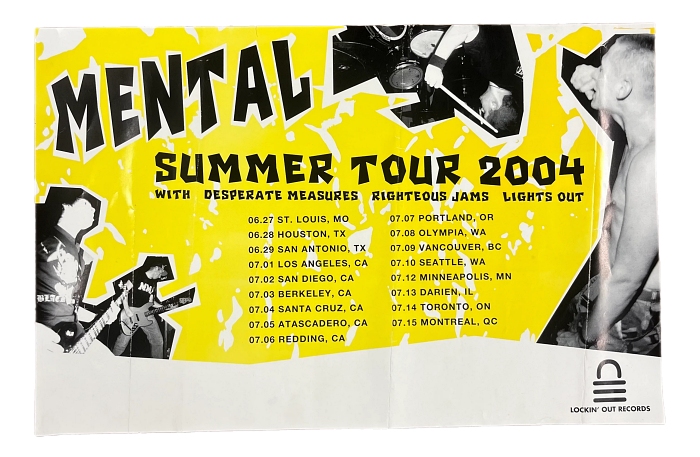
One time, we were driving back from Los Angeles in the middle of the night. We headed back home after the show because we liked driving at night. Andrew was driving and everyone else besides him and the front seat passenger were sleeping, just laying down on the benches in sleeping bags and such. Apparently, some car had come up and tailgated Andrew for a bit and pissed him off, so when the car got around us, Andrew decided to fuck with them. Sped up, slowed down, turned the headlights off and turned them on when he got real close to them again. Like, it’s 3am near Bakersfield or whatever.
The other car got frightened and called the cops. The cops basically told the other car, “hey, they tailgated you but you also tailgated them, there’s nothing I can do about it, but I’ll at least keep them here for a minute so you can get on your way.” And then the cop gave seat belt tickets to the 4 of us (myself included), who’d been sleeping in the back and missed the entire thing. When one of us told Andrew he was gonna pay for our tickets he just laughed and said “fuck off, you know I’m not gonna,” and we knew he was right. It didn’t take too long for all of us to find it funny.

What caused the band to break up? It seems like you had the typical trajectory of a hardcore band, which is still short in retrospect. I think Ceremony covered Lights Out at one of the Rivalry fests because you were supposed to play and then you all of the sudden broke up.
(Laughs) Yeah, they did do that. It was right after we broke up, or at least pulled out of some shows. I don’t recall making a big stink about breaking up. We certainly didn’t play any “last show.” We split around February 2007 and hadn’t played a show since November 2006 so we just left it at that.
To answer your question, from my perspective anyway, we had just grown differently and apart in the short time we were together. Like I said earlier, I was between 17-21 years old when we were a band, and everyone else was of a similar age. Those are pretty formative years, and we burned brightly for a bit, but just burned out.
The US tour we did in 2006 was tough interpersonally, and a lot of that simmered and bubbled for a while. It blew up eventually and we went our separate ways.

You played two reunion shows in 2015. I was at the LA one and it was a dream come true, since I didn’t get to see you when you were a band. What prompted those and how were you received at them?
It’s funny; we’d get asked every couple years to do a show. A benefit for Gilman, a last show of one of our friends’ bands, things like that. We never had everyone on board. Then for whatever reason, enough time passed, and we got asked to play two shows with No Warning.
I think partially because we missed that one show we were supposed to play with them in 2004, and cuz we all loved that band, and honestly, kinda relating back to what you said about us being goofy and not taking ourselves too seriously, I think we all knew it would be funny for that to be the reason we played again (laughs). Just like, fuck it, why not? That’s how it seemed to me anyway.
The reception we got at both shows was unbelievable. It couldn’t have been better. I remember a moment at the LA show specifically, where I looked at the crowd and people up front singing along and freaking out, and saw the vocalists of what I considered to be some of the bigger hardcore bands of the day; Ceremony, Trash Talk, and Rotting Out. That was cool to see the lineage and possible influence and importance.

How do you feel about Lights Out over 20 years removed from its start? When can we expect another reunion show?
I feel good about it, man. We were super young, we did a lot in a short period of time, we stayed true to ourselves, didn’t outstay our welcome, and did it all without any scandal or making any serious enemies. It was pretty much the same 5 of us throughout the entire period, with some fill-ins here and there.
Musically, I am proud of the growth we made throughout the band, and I think Overload is still pretty awesome. But I don’t think we’ll do another reunion show, (laughs). Can’t get much better than it was already. Thanks for the interview and the interest!
***
Acknowledgements go to Kyle Whitlow (Rivalry Records) and his blog.
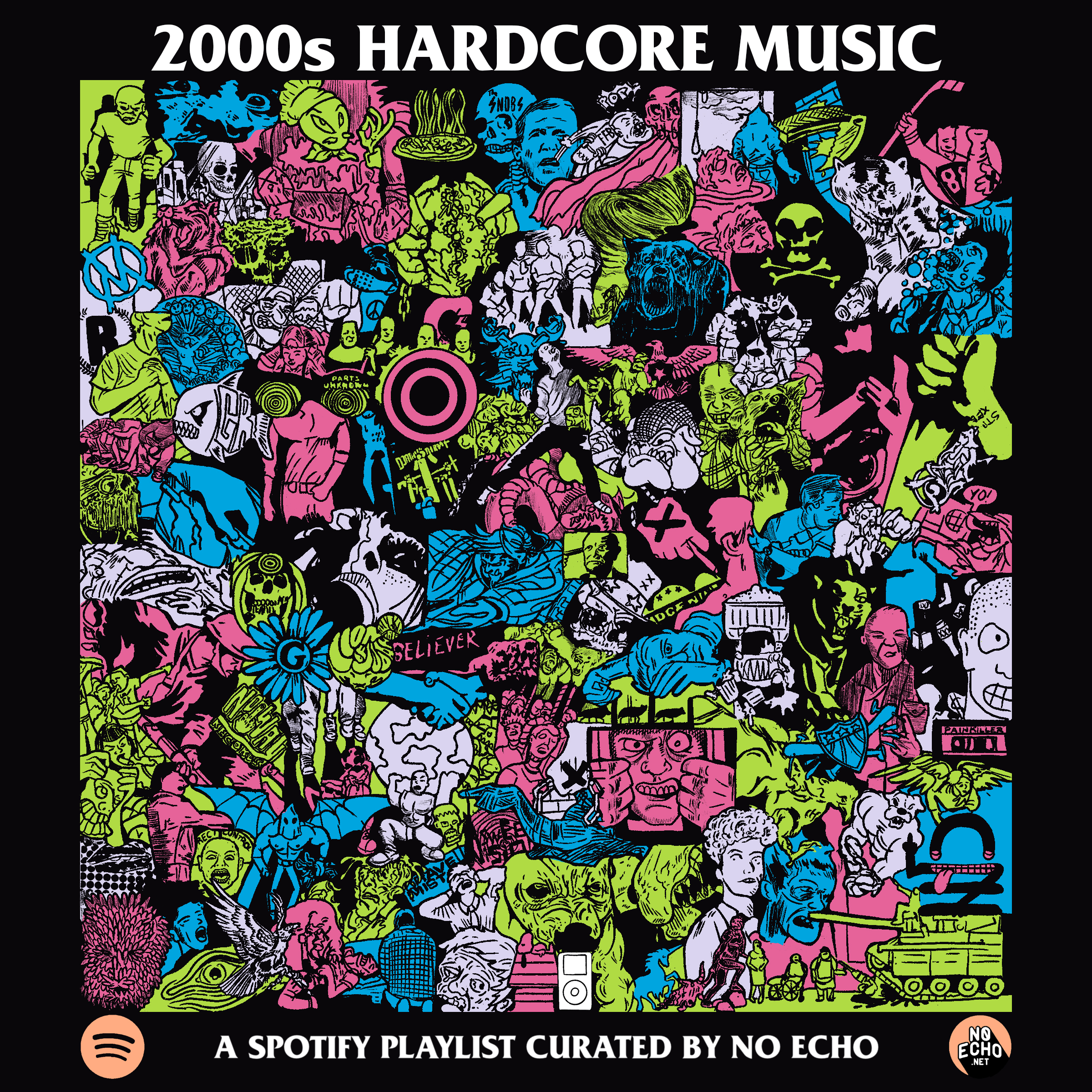
Tagged: 2000s hardcore week, lights out

